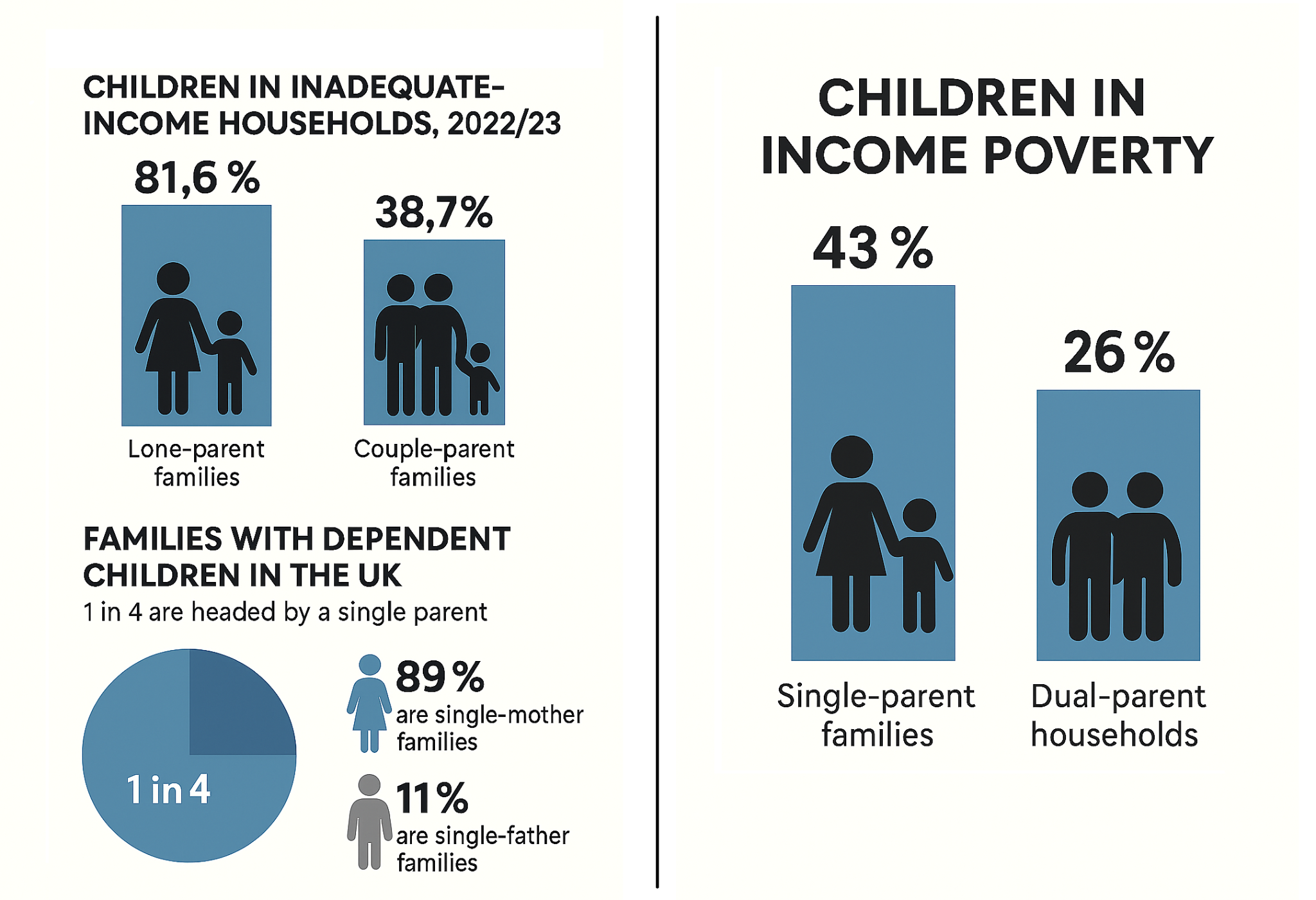
Single Parents in crisis: Over 80% below minimum income as UK families battle financial hardship
Recent data indicate that single-parent households in the United Kingdom are experiencing significant financial challenges, with more than 80% living below the Minimum Income Standard (MIS). Analysis from the Joseph Rowntree Association, Gingerbread, and the Office for National Statistics highlights the substantial disparity between earnings and the income required for an acceptable standard of living.
The ongoing cost-of-living increases have placed considerable strain on single-parent families. According to the Joseph Rowntree Association’s “Households living below a Minimum Income Standard report (published in February 2025), shows that 35.9% of the UK population, approximately 24 million individuals were unable to meet essential needs such as adequate nutrition, heating, and basic household expenses during 2022–23.
Children are disproportionately affected by these circumstances. Nearly half (48.6%) reside in households earning below the MIS threshold. The situation is particularly acute among lone-parent families, where 81.6% do not achieve the minimum living standard, according to the same report.
There are currently about 2 million single parents caring for 3.3 million dependent children across the UK (Gingerbread Research Data, March 2025). While two-thirds (66%) of single parents are employed, employment alone does not eliminate poverty risk: 43% of children in single-parent families live in income poverty, compared to 26% in dual-parent households.
Beyond wage levels, single-parent households are also twice as likely as couples to experience fuel poverty (29% versus 14%, ONS, May 2024). Furthermore, 36% of single parents have no savings, and 13% relied on food banks in the past year, a rate more than four times higher than among couple families (Gingerbread Research Data, March 2025).
Remarkably, 67.6% of all working-age households below the MIS include at least one employed individual, illustrating that both wages and welfare support are insufficient to offset rising living costs (Joseph Rowntree Assoc. MIS Report, Feb 2025). With inflation and energy prices still increasing, even full-time employment does not ensure financial security.
Organisations such as Gingerbread emphasise the need for increased benefit levels and improved access to subsidised childcare. Without such measures, many single-parent families are likely to remain in poverty, and their children will continue to face challenging circumstances in contemporary Britain.
If you have bene affected by any of the issues raise in this article, advice can be found from Gingerbread Charity: https://www.gingerbread.org.uk
Post a comment